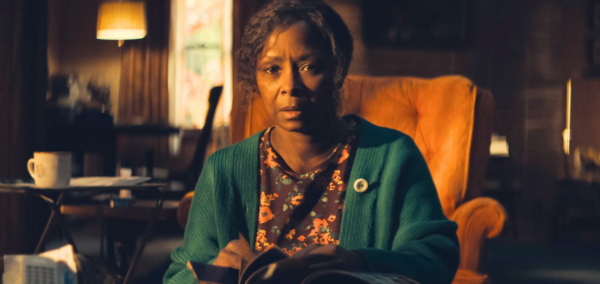
A brief guide on starting out as a young journalist: Top tips from ex-KCL journos
Emerging journalists – Nila Varman, Hanna Pham, and Shaheena Uddin – reveal the diverse paths to success in the journalism industry
In our journey to understand the world of journalism, we often paint an idyllic picture of globetrotting, luxury expenses, and high-profile bylines. But the reality of breaking into the field is quite different. To uncover the truth about starting a career in journalism, we turned to three young journalists who went to KCL – Nila Varman, Hanna Pham, and Shaheena Uddin – who generously shared their experiences, insights, and tips for those aspiring to enter the industry.
Discovering Your Path in Journalism
Perhaps the most crucial lesson learned is that journalism offers a vast array of opportunities. The traits of dedication and tenacity required to succeed in this field are no secret, but the satisfaction of crafting a compelling story makes every hardship worthwhile. Journalism’s beauty lies in the diverse perspectives each individual brings to the table. While it might seem daunting for newcomers, this article provides an insider’s view of what to expect.
Starting Your Journey as a Student
University life can be a whirlwind of deadlines, early lectures, and the pursuit of a social life. However, it is also the perfect time to build your journalistic portfolio. Nila, Hanna, and Shaheena unanimously advocate getting your work published. Fortunately, universities like King’s College London offer numerous student publications, including ROAR, the King’s Business Review, Strand Mag, and of course, us – the King’s Tab. Pitch your ideas, get involved, and start building your resume.
Most Read
Shaheena also suggests trying your hand at smaller publications and local newspapers, as she did while studying for an English degree. These experiences allowed her to build valuable relationships with fellow writers and form connections that proved beneficial later on. When pitching, keep your ideas concise and original, and don’t hesitate to seek advice from resources like JournoResources.
Nila Varman, known for hosting The Nila Extract podcast and working as an Assistant Producer at BBC Asian Network, recommends exploring university radio. Platforms like KCL Radio provide an excellent opportunity to learn the basics of hosting and producing your own show, offering a glimpse into the world of broadcast journalism. Nila underscores the importance of discovering your interests during your university years, encouraging students to explore various fields. She also emphasizes the value of reaching out to people for guidance and opportunities, even if it feels uncomfortable.
Securing a second-year summer internship can be a source of great stress. However, as our journalists revealed, not landing one does not spell the end of your journalism dreams. Hanna Pham found her experience at KURF (King’s Undergraduate Research Fellowship) to be invaluable, even though it was more research-oriented. She learned transferable skills that have proven essential in her part-time internship at CNN in Style and Opinion. Hanna also freelanced for her department and assisted with social media.

Life After Graduation: NCTJ, Master’s, Grad Schemes, or Freelancing?
For aspiring journalists fresh out of university, there are several paths to consider. The most common include pursuing a journalism qualification through a Master’s degree or the NCTJ (National Council for the Training of Journalists) qualification. Hanna and Shaheena offer insights into the pros and cons of each.
Hanna, an international student, found security in pursuing a Master’s degree, as it provided a stable path forward. Logistically, the NCTJ did not align with her circumstances. She recommends a Master’s degree for those without immediate job prospects, as journalism can be a challenging field to enter right after graduation.
The extra cost and time commitment of a Master’s degree may seem daunting, but Hanna points out that scholarships and bursaries are readily available, and many employers understand the need for students to work part-time while pursuing advanced degrees.
On the other hand, Shaheena is pursuing an NCTJ qualification, which she views as a more affordable and faster route to acquire essential journalistic skills. This qualification is widely recognised and often required for many journalism jobs. Without a Master’s or NCTJ, you may need several years of work experience to compensate.
Nila’s perspective offers a unique angle. She values hands-on work experience over formal qualifications. Although she acknowledges that qualifications can be beneficial, she has never been disadvantaged for not having a journalism degree. Nila’s journey underscores that there are multiple paths to success in journalism, and the choice depends on your interests and your willingness to invest time and money.

What Awaits in a Journalism Career: Networking, Deadlines, Portfolio Building, Media’s Significance, and Twitter
To gain a deeper understanding of the life of a journalist, I spoke with Nila, Hanna, and Shaheena about their experiences and challenges in the field. All three expressed the joy of working on topics they are passionate about and the opportunity to meet fascinating people. The fast-paced environment, however, comes with its own set of challenges. Journalists are known for their relentless work ethic, but it’s vital not to sacrifice your health for the sake of the job. Frequent breaks and avoiding the pitfalls of ‘hustle culture’ are crucial for maintaining well-being.
Rejection is another challenge in journalism. It can be disheartening and sometimes feel personal, but it’s essential not to take it to heart. Persistence is key, and more often than not, the reasons for rejection are beyond your control. Imposter syndrome is also a common struggle in the field, as Nila shared. She reminds aspiring journalists that the journey will never be linear, and many others face similar challenges.
One aspect worth highlighting is the importance of networking. Is it as crucial as it’s made out to be, and how do you go about building these connections? What I learned is that connections do matter, but quality trumps quantity. It’s more beneficial to establish meaningful relationships with a few individuals over time than to have an extensive, superficial network.
When reaching out to professionals, focus on those who align with your interests and career goals. Being kind and genuine in your interactions can go a long way in building valuable connections. For introverts, Shaheena offers a comforting perspective: make friends whose experiences you genuinely care about and want to learn from. You can nurture these relationships slowly over time, and remember that many journalists struggle with networking, so it’s okay to take your time.
https://www.instagram.com/p/CeqhBI7LwF9/?img_index=1
The Importance of Representation and a Final Note on Diverse Journeys
To gain deeper insights into the field, we deliberately sought the perspectives of women journalists of colour, who often come from underrepresented backgrounds. They shed light on the importance of representation in journalism.
Shaheena Uddin, for instance, highlighted how her drive to push back against inadequate representation motivated her to tell stories that matter. Overcoming barriers and forging her path, she emphasised the need for diversity in media, noting that our media should represent everyone’s stories.
Hanna Pham discussed the lack of diversity she encountered in the industry, referring to it as “male, pale, and stale.” Yet, she found that diverse perspectives were essential for a nuanced understanding of the world, and she highlighted the contributions of teams like gal-dem and the importance of diverse voices in climate reporting.
Nila Varman’s journey emphasised giving a platform to communities with stories that often go unheard. She pointed out the significance of learning from people and communities directly and the need to address misrepresented ideas. Nila acknowledged that women of color often have to work harder and break stereotypes. She urged them not to confine themselves to a single aspect of their identity but to embrace their multifaceted talents and interests.
The paths to a successful journalism career are diverse and depend on your personal aspirations, resources, and experiences. The journalism industry offers numerous opportunities for aspiring writers, reporters, and storytellers. It’s a challenging yet rewarding field, and as Nila, Hanna, and Shaheena have shown, success is attainable through dedication, persistence, and a willingness to learn and adapt.
A heartfelt thanks to the three insightful journalists who contributed to this piece:
– Nila Varman, host, and producer of the award-winning podcast, ‘The Nila Extract,’ and Assistant Producer at the BBC.
– Hanna Pham, pursuing a Master’s degree in International Journalism at City University and working as a Style and Opinion Intern at CNN.
– Shaheena Uddin, working at the Sky digital mobile desk, aspiring to take on editorial or correspondence roles, and complete an NCTJ qualification in the near future.


















